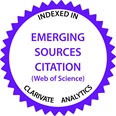Tytuł
Technologia, modele biznesowe i przewaga konkurencyjna w erze Przemysłu 4.0
Keywords
business model, business model innovation Industry 4.0, technology innovation
Słowa kluczowe
innowacje technologiczne,model biznesowy,Przemysł 4.0
Abstract
Industry 4.0 is a concept which sets out a way of understanding the observed revolutionary changes in the organization of manufacturing processes and their impact on businesses and societies. The scale and scope of changes already underway are seen as so large as to mark the advent of a new industrial age. While technology innovation is widely recognized as a key determinant of firm success in this new age, the role of business models (BMs) and business model innovation (BMI) remains understudied, and therefore potentially underestimated in this setting. Thus, the aim of this paper is to analyze how BMs and BMI relate to technology innovation in shaping the competitive advantage of firms in the age of Industry 4.0. As the topic is far too broad for any single empirical analysis, the author’s ambition is to lay theoretical groundwork for future empirical studies. To achieve that, integration and reinterpretation of several separate streams of managerial literature is required, for which interpretative literature review has been selected as the most appropriate research method. The study shows that BMs (and thus BMI) mediate in the commercialization of new technologies, build on and leverage technology innovation, elicit and foster such innovation, and cause disruption, changing rules of the game and triggering new waves of technology innovation. As a separate type of innovation, BMI can be a source of competitive advantage superior to technology innovation. These findings suggest that focusing on technology innovation while downplaying BMI would result in only partial understanding of the sources of competitive advantage in the age of Industry 4.0.
Abstrakt
Przemysł 4.0 to koncepcja, która określa sposób rozumienia obserwowanych rewolucyjnych zmian w organizacji procesów produkcyjnych i ich wpływu na przedsiębiorstwa i społeczeństwa. Skala i zakres tych zmian są tak wielkie, że postrzegane są jako wyznaczające nadejście nowej ery przemysłowej. Podczas gdy innowacje technologiczne są powszechnie uznawane za kluczowy czynnik decydujący o sukcesie przedsiębiorstw w tej nowej erze, rola modeli biznesowych i innowacji modelu biznesowego pozostaje niedostatecznie zbadana, a zatem potencjalnie niedoszacowana w tym kontekście. Dlatego celem tego artykułu jest analiza, w jaki sposób modele biznesowe i innowacje modelu biznesowego odnoszą się do innowacji technologicznych w kształtowaniu przewagi konkurencyjnej firm w dobie Przemysłu 4.0. Ponieważ temat jest zbyt szeroki dla pojedynczej analizy empirycznej, ambicją autora jest położenie teoretycznych podstaw dla przyszłych badań empirycznych. Aby to osiągnąć, wymagana jest integracja i reinterpretacja kilku oddzielnych strumieni literatury menedżerskiej, dla których jako najbardziej odpowiednią metodę badawczą wybrano interpretatywny przegląd literatury. Badanie pokazało, że modele biznesowe i (a tym samym innowacje modeli biznesowych) pośredniczą w komercjalizacji nowych technologii, wykorzystują je i rozwijają się dzięki nim, wywołują i wspierają takie innowacje, zmieniają reguły gry i wywołują nowe fale innowacji technologicznych. Jako oddzielny typ innowacje modeli biznesowych mogą być źródłem przewagi konkurencyjnej nad innowacjami technologicznymi. Wyniki te sugerują, że skupienie się na innowacjach technologicznych przy jednoczesnym bagatelizowaniu lub umniejszaniu roli innowacyjnych modeli biznesowych prowadzić może do silnie ograniczonego zrozumienia źródeł przewagi konkurencyjnej w dobie Przemysłu 4.0.
Recommended Citation
Pietrewicz, L. (2019). Technology, Business Models and Competitive Advantage in the Age of Industry 4.0. Problemy Zarządzania, 17(82), 32-52. https://doi.org/10.7172/1644-9584.82.2
First Page
32
Last Page
52
Page Count
20
DOI
10.7172/1644-9584.82.2
Publisher
University of Warsaw







